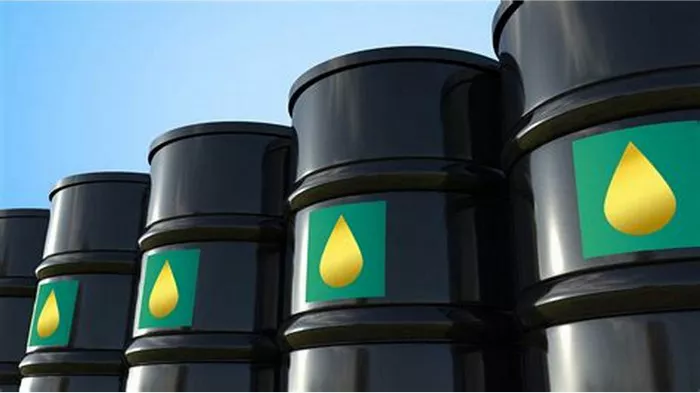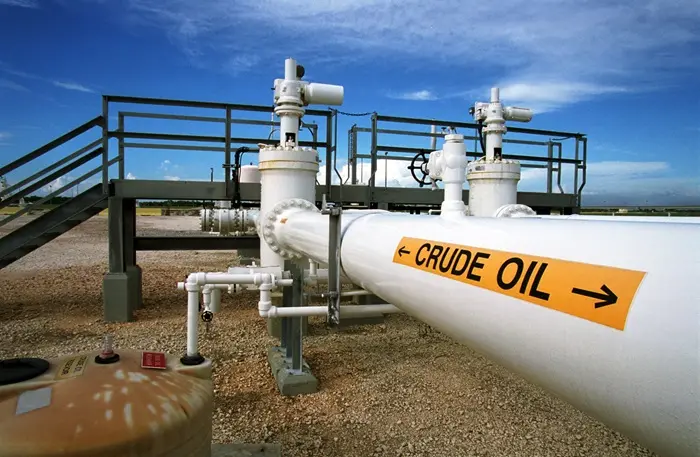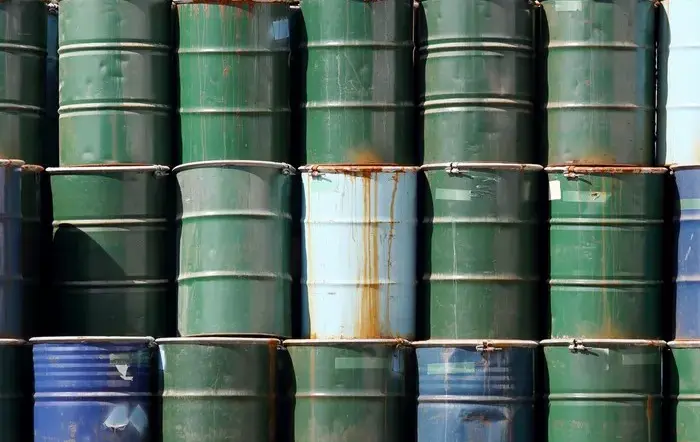Crude oil is one of the most important natural resources in the world, playing a pivotal role in the global economy. From fueling transportation and electricity generation to providing raw materials for countless products, crude oil’s discovery and use have shaped modern civilization. But when was crude oil first discovered, and how did it become such an integral part of our lives? This article will explore the history of crude oil discovery, its significance, and the technological advancements that made it a key commodity in global markets.
The Early Use of Oil
Before crude oil was recognized for its commercial value, people had been using its by-products for thousands of years. The ancient civilizations of Mesopotamia, Egypt, China, and others were aware of the existence of oil and used it in a variety of ways. They would often extract oil from surface seeps or “tar pits” and use it for medicinal purposes, waterproofing boats, and lighting lamps.
Early Records of Oil Use
Mesopotamia (Around 3000 BCE): The earliest records of oil use date back to ancient Mesopotamia. The Sumerians, one of the earliest civilizations in the region, used bitumen, a form of crude oil, for waterproofing their boats and building structures.
Egypt (Around 1500 BCE): The Egyptians used oil for a variety of purposes, including as an ingredient in cosmetics, medicine, and in the embalming process for mummies.
China (Around 600 BCE): In ancient China, oil was used for lighting lamps and even for military applications, such as in the form of flaming projectiles.
While these early uses were important, they were based on the discovery of surface oil, not the exploration and extraction of crude oil from deep underground reservoirs, which is what would later define the modern oil industry.
The Discovery of Crude Oil: A New Era
The discovery of crude oil as a commercially viable resource for industrial purposes did not occur until much later, in the 19th century. The breakthrough came with the advent of drilling technology, which allowed people to tap into oil reservoirs deep below the Earth’s surface.
The Birth of the Modern Oil Industry
The modern discovery of crude oil is most commonly associated with the drilling of the first successful oil well in 1859. This event is widely regarded as the birth of the oil industry, as it marked the beginning of the widespread commercial exploitation of crude oil.
Titusville, Pennsylvania (1859): On August 27, 1859, a man named Edwin L. Drake successfully drilled the first oil well in Titusville, Pennsylvania, using a steam-powered drill. This well, known as Drake’s Well, reached a depth of 69 feet and produced crude oil. Although the well initially only produced a small amount of oil, it marked a turning point in the history of oil exploration. The discovery at Titusville set off the first major oil boom in the United States and contributed to the global demand for crude oil.
The success of Drake’s well led to the rapid development of oil extraction technology, and soon, oil wells were drilled in other parts of Pennsylvania, as well as in other states and countries. By the late 19th century, crude oil was being refined into kerosene, which was widely used for lighting lamps, a common source of illumination at the time.
The Role of Kerosene in the Early Oil Industry
At the time of the discovery of crude oil, kerosene was the most valuable byproduct of oil, primarily used for lighting. Before the invention of electricity, kerosene lamps were the primary source of lighting in homes, businesses, and streets. This high demand for kerosene in the late 19th century drove the expansion of the oil industry.
John D. Rockefeller and Standard Oil: One of the key figures in the early days of the oil industry was John D. Rockefeller, who founded Standard Oil in 1870. Rockefeller’s company quickly grew to dominate the U.S. oil industry, refining vast amounts of crude oil into kerosene and other products. His company’s success helped solidify crude oil as a valuable resource in the global economy.
Technological Advances and the Rise of Oil
As the demand for oil grew, so did the technology for drilling, transporting, and refining crude oil. Several technological advancements in the late 19th and early 20th centuries played a crucial role in making crude oil more accessible and useful.
The Spindletop Discovery (1901)
One of the most important milestones in the history of crude oil discovery was the Spindletop oil field in Texas, discovered in 1901. The Spindletop field became famous for its massive oil gusher, which shot oil hundreds of feet into the air, signaling the discovery of one of the richest oil fields in the world at the time.
Impact of Spindletop: The Spindletop discovery marked the beginning of the Texas oil boom, which would become a critical part of the global oil industry. It led to the establishment of major oil companies, such as Gulf Oil and Texaco, and contributed to the rapid growth of the U.S. oil industry.
The Advent of Oil Refineries
In parallel with the discovery of new oil fields, advances in oil refining technology allowed for the conversion of crude oil into a range of useful products. By the late 1800s, oil refineries were being built in key locations around the world, and crude oil began to be refined into products such as gasoline, diesel, lubricants, and asphalt, in addition to kerosene.
The First Automobile and Gasoline: With the invention of the automobile by Henry Ford and others in the early 20th century, the demand for gasoline skyrocketed. This marked the beginning of gasoline’s dominance as the primary fuel for transportation, which continues today.
The Global Expansion of the Oil Industry
After the initial discoveries in the United States, the search for crude oil spread to other parts of the world. Throughout the 20th century, major oil fields were discovered in regions such as the Middle East, Russia, and South America, leading to the formation of international oil companies and a global oil market.
The Discovery of Oil in the Middle East
One of the most important regions for oil discovery and production is the Middle East, which holds some of the largest oil reserves in the world. The first significant discovery in the Middle East occurred in Iran in 1908, followed by Saudi Arabia in the 1930s.
Saudi Arabia’s Ghawar Field: In 1948, the Ghawar oil field was discovered in Saudi Arabia, which remains the largest conventional oil field in the world. This discovery solidified the Middle East’s position as a major global supplier of crude oil.
The Formation of OPEC (1960)
As crude oil production expanded globally, the countries with the largest oil reserves began to form organizations to coordinate the extraction and pricing of oil. The Organization of Petroleum Exporting Countries (OPEC) was founded in 1960, with the aim of stabilizing the oil market and ensuring fair prices for oil-producing nations.
OPEC’s influence over the global oil market has been significant, especially during the oil crises of the 1970s, when oil prices spiked due to political instability in the Middle East and OPEC’s decisions to cut production.
Crude Oil in the Modern World
Today, crude oil remains a critical part of the global economy. It is used in everything from transportation fuels to petrochemicals, which are the building blocks for plastics, fertilizers, and synthetic materials. However, crude oil extraction and use have also raised concerns about environmental issues, including pollution and climate change.
Environmental and Geopolitical Impacts
The global demand for crude oil has led to environmental challenges, including oil spills, air pollution, and the carbon emissions associated with the burning of oil products. These concerns have driven the development of alternative energy sources, such as wind, solar, and electric vehicles, as part of a global effort to reduce reliance on fossil fuels.
In addition to environmental concerns, the geopolitical implications of oil have been profound. Countries with large oil reserves, particularly in the Middle East, have played significant roles in international politics, and conflicts over oil resources have been a common cause of tension throughout the 20th and 21st centuries.
Shifting Energy Trends
As concerns over climate change and sustainability grow, many nations are shifting away from fossil fuels and investing in renewable energy technologies. However, crude oil will likely remain an important part of the global energy mix for the foreseeable future, as the transition to alternative energy sources takes time.
Conclusion
The discovery of crude oil in 1859 marked the beginning of a new era in the global economy, transforming industries, geopolitics, and the way people live. From the early uses of surface oil by ancient civilizations to the drilling of the first successful oil well in Pennsylvania, the history of crude oil is intertwined with the development of modern society. Today, crude oil continues to be a critical resource, and its discovery has had lasting effects on the world. While the future of energy may see a shift toward renewable resources, crude oil’s legacy will remain an integral part of human history and progress.
Related topics:

































